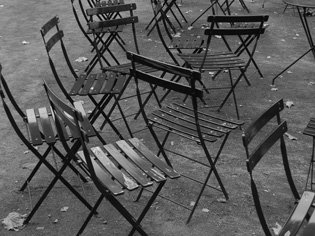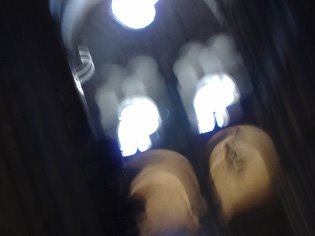September, 11

" Our fourteen-year-old daughter started high school today. For the first time in her life, she rode on the subway from Brooklyn to Manhattan – alone.
She will not be coming home tonight. The subways are no longer running in New York, and my wife and I have arranged for her to stay with friends on the Upper West Side.
Less than an hour after she passed under the World Trade Center, the Twin Towers crumbled to the ground.
From the top floor of our house, we can see the smoke filling the sky of the city. The wind is blowing toward Brooklyn today, and the smells of the fire have settled into every room of the house. A terrible, stinging odor: flaming plastic, electric wire, building materials.
My wife’s sister, who lives in TriBeCa, just ten blocks north of what was once the World Trade Center, called to tell us about the screams she heard after the first tower collapsed. Friends of hers, who live on John Street, even closer to the site of the catastrophe, were evacuated by police after the door of their building was blown in by the impact. They walked north through the rubble and debris – which, they told her, contained human body parts.
After watching the news on television all morning, my wife and I went out for a walk in the neighbourhood. Many people were wearing handkerchiefs over their faces. Some wore painters’ masks. I stopped and talked to the man who cuts my hair, who was standing in front of his empty barber shop with an anguished look on his face. A few hours earlier, he said, the woman who owns the antique shop next door had been on the phone with her son-in-law – who had been trapped in his office on the 107th floor of the World Trade Center. Less than an hour after she spoke to him, the tower collapsed.
All day, as I have watched the horrific images on the television screen and looked at the smoke through the window, I have been thinking about my friend, the high-wire artist Philippe Petit, who walked between the towers of the World Trade Center in August 1974, just after construction of the buildings was completed. A small man dancing on a wire more than five hundred yards off the ground – an act of indelible beauty.
Today, that same spot has been turned into a place of death. It frightens me to contemplate how many people have been killed.
We all knew this could happen. We have been talking about the possibility for years, but now that the tragedy has struck, it’s far worse than anyone ever imagined. The last foreign attack on American soil occurred in 1812. We have no precedent for what has happened today, and the consequences of this assault will no doubt be terrible. More violence, more death, more pain for everyone.
And so the twenty-first century finally begins. "
(Random Notes – September 11, 2001 – 4:00 PM, Paul Auster)







